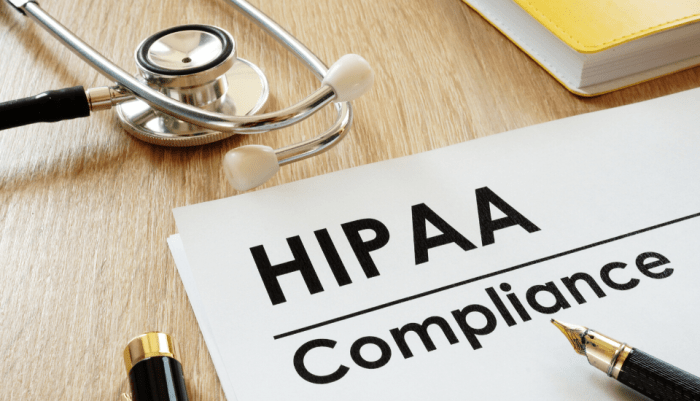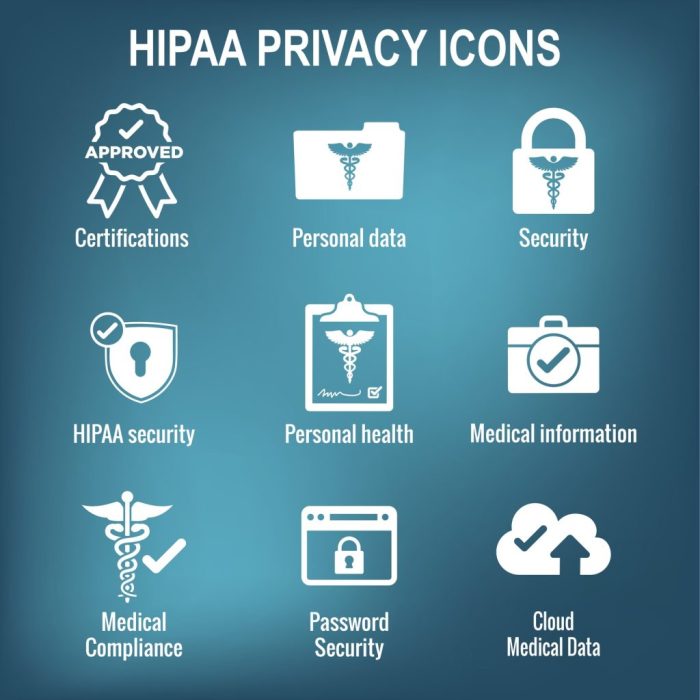Select all that apply the hipaa privacy rule permits – Select All That Apply: The HIPAA Privacy Rule Permits is a comprehensive guide to the HIPAA Privacy Rule, providing a clear and concise overview of the law’s requirements and how they apply to healthcare providers and individuals.
This guide covers a wide range of topics, including individual rights, permitted uses and disclosures of PHI, the minimum necessary requirement, security measures, and enforcement. It also includes FAQs and related tags to help readers quickly find the information they need.
1. Individual Rights: Select All That Apply The Hipaa Privacy Rule Permits
The HIPAA Privacy Rule grants individuals several rights regarding their protected health information (PHI). These rights include the right to access, amend, or request restrictions on the use or disclosure of PHI. Individuals also have the right to receive an accounting of disclosures of PHI.
Right to Access PHI
- Individuals have the right to inspect and obtain a copy of their PHI.
- Requests for access must be made in writing.
- Covered entities must provide access within 30 days of receiving the request.
Right to Amend PHI
- Individuals have the right to request that covered entities amend inaccurate or incomplete PHI.
- Requests for amendment must be made in writing.
- Covered entities must respond to requests within 60 days of receiving the request.
Right to Request Restrictions
- Individuals have the right to request that covered entities restrict the use or disclosure of their PHI.
- Requests for restrictions must be made in writing.
- Covered entities must comply with requests unless there is a compelling reason not to do so.
Right to Receive an Accounting of Disclosures
- Individuals have the right to receive an accounting of disclosures of their PHI.
- Requests for an accounting must be made in writing.
- Covered entities must provide an accounting within 60 days of receiving the request.
2. Permitted Uses and Disclosures
The HIPAA Privacy Rule permits the use and disclosure of PHI for certain purposes without the individual’s authorization. These purposes include:
Treatment
- PHI may be used and disclosed for the purpose of providing treatment to the individual.
- This includes sharing PHI with other healthcare providers who are involved in the individual’s care.
Payment
- PHI may be used and disclosed for the purpose of obtaining payment for healthcare services.
- This includes sharing PHI with health insurers and other third-party payers.
Healthcare Operations
- PHI may be used and disclosed for the purpose of conducting healthcare operations.
- This includes activities such as quality assurance, utilization review, and fraud detection.
Other Permitted Uses and Disclosures
- PHI may also be used and disclosed for a variety of other purposes, such as research, public health activities, and law enforcement.
- These uses and disclosures are permitted only if they are specifically authorized by law.
3. Minimum Necessary Requirement

The HIPAA Privacy Rule requires that covered entities only use or disclose the minimum necessary PHI to accomplish the purpose of the use or disclosure.
Implementing the Minimum Necessary Requirement
- Covered entities can implement the minimum necessary requirement by:
- Limiting the amount of PHI that is accessed or disclosed.
- Using de-identified or anonymized PHI whenever possible.
- Educating staff on the importance of protecting PHI.
Consequences of Failing to Comply, Select all that apply the hipaa privacy rule permits
- Failure to comply with the minimum necessary requirement can result in penalties, including fines and imprisonment.
- It can also damage the reputation of the covered entity and erode trust with patients.
4. Security Measures

The HIPAA Privacy Rule requires covered entities to implement security measures to protect PHI from unauthorized access, use, or disclosure.
Types of Security Measures
- Covered entities must implement a variety of security measures, including:
- Physical safeguards, such as access control and surveillance cameras.
- Technical safeguards, such as encryption and firewalls.
- Administrative safeguards, such as policies and procedures for handling PHI.
Security Breaches
- Security breaches can occur when PHI is accessed, used, or disclosed without authorization.
- Security breaches can have a significant impact on individuals, including financial losses, identity theft, and discrimination.
Best Practices for Preventing and Responding to Security Breaches
- Covered entities can prevent and respond to security breaches by:
- Conducting regular risk assessments.
- Implementing a comprehensive security plan.
- Educating staff on security best practices.
5. Enforcement

The Office for Civil Rights (OCR) is responsible for enforcing the HIPAA Privacy Rule.
Penalties for Violating the HIPAA Privacy Rule
- OCR can impose a variety of penalties for violating the HIPAA Privacy Rule, including:
- Fines
- Imprisonment
- Corrective action plans
Enforcement Actions
- OCR has taken a number of enforcement actions against covered entities for violating the HIPAA Privacy Rule.
- These actions have included fines, corrective action plans, and settlements.
Quick FAQs
What is the HIPAA Privacy Rule?
The HIPAA Privacy Rule is a federal law that protects the privacy of health information. It applies to healthcare providers, health plans, and other entities that handle health information.
What are the individual rights under the HIPAA Privacy Rule?
Individuals have the right to access, amend, or request restrictions on the use or disclosure of their PHI. They also have the right to receive an accounting of disclosures of their PHI.
What are the permitted uses and disclosures of PHI under the HIPAA Privacy Rule?
PHI can be used or disclosed without the individual’s authorization for a variety of purposes, including treatment, payment, and healthcare operations.
What is the minimum necessary requirement under the HIPAA Privacy Rule?
The minimum necessary requirement means that only the minimum amount of PHI necessary to achieve a purpose can be used or disclosed.
What are the security measures required under the HIPAA Privacy Rule?
Healthcare providers must implement reasonable and appropriate security measures to protect PHI from unauthorized access, use, or disclosure.
